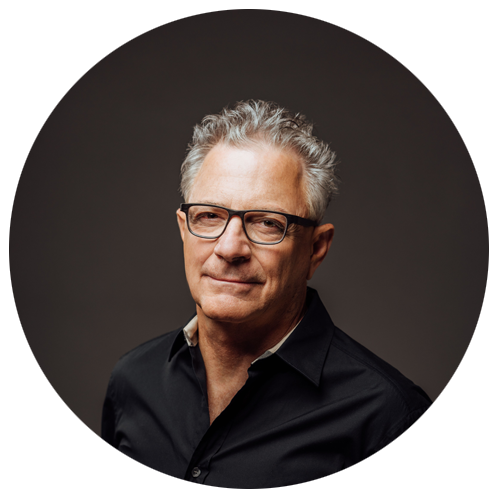Yesterday a ten-year-old girl walked into my clinical therapy office with an ear-to-ear grin.
“You didn’t tell me life could feel like this! Feeling like this is so much better.” She sat back on the couch in a casual, effortless way, a behavioral contrast to years of discomfort and battling debilitating anxiety.
I smiled and leaned back. “Tell me more,” I said.
“I’m getting good sleeps now. I’m doing the tools and tricks and it’s working!”
“That’s wonderful,” I gleamed back, mirroring her enthusiasm.
She then looked down with a sudden shift in tone, her facial expression changing to a forlorn look, with a tense brow and sudden sad and tearing eyes. “What if it comes back? The feelings, the nightmares…”
In these moments, as a psychotherapist and human, I want to console people. I want to look them in the eyes and share that somehow, I can take away their pain and suffering. Yet, I’m aware I do not hold this special power, nor is it in my integrity to lie.
“It will come back I imagine. If you are ten and you live until you are eighty-five, that’s seventy-five years. In the next seventy-five years I imagine there will be sad or challenging moments and some bad dreams.”
The girl’s fear seemed to sink into her stomach as I said these words I hated to say. She sunk into my couch.
“We can’t get rid of pain in life, or fear for that matter,” I said. “However, we can build up our tools, healthy coping skills, intuition, friendships, and inner resources so when something happens you are more prepared to meet the challenge and ready for a faster recovery.”
The little girl looked up, knowing that I was being honest with her and seeming grateful for my not sugar-coating things.
I continued, “What I see is a courageous ten-year-old who doesn’t need to be afraid of fear because she has the skills, tools, and bravery to meet the challenges that come her way.”
“I don’t know if I’m brave,” she responded, her voice trailing off in the end.
“Do you think bravery is difficult things not happening in life?” I responded.
The little girl laughed. “No…”
“Exactly.” I leaned in.
“Bravery is having a heart, community, imagination, and courage to know you can get through hard things. And getting through hard things you are afraid of is something I know you can do. When the nightmares came, you befriended them with internal resources. When Covid came and school shut down, you got through your online school. When your grandmother passed away, you opened your heart and tears to love her through her passing transition. You know how to do hard things. You are one incredibly courageous person, and no hard thing, fear, or person can take that away from you.”
In the Dream Tending method, we look to the nightmarish figures, the hard things, to find the pathway to healing. It is the irritant that creates the pearl. It is the challenge that highlights the courage. It is the ugly that informs beauty.
In our upcoming workshop, The Healing Power of Dreams: The Craft of Dream Tending, we will dive into the healing powers within dreams. This one-day workshop, Saturday, August 13th, is intended for dreamers, seekers, and healers at all levels wishing to gain more knowledge and personal insight into the healing power of their dreams. Register today with the discount code HEALING to save your spot.
Cultivating Courage Exercise:
- Write down in a journal five things that you have done that have been hard this last year.
- Brené Brown reminds us that “courage is a heart word. The root of the word courage is cor—the Latin word for heart. In one of its earliest forms, the word courage meant ‘to speak one’s mind by telling all one’s heart.’ Over time, this definition has changed, and today, we typically associate courage with heroic and brave deeds. But in my opinion, this definition fails to recognize the inner strength and level of commitment required for us to actually speak honestly and openly about who we are and about our experiences—good and bad. Speaking from our hearts is what I think of as ‘ordinary courage.’”
- Take a moment to listen into your heart. Write down what it is desiring. You may want to start with a prompt: “If my heart had a voice, it would say…”
- At the end, write down or say aloud the following affirmations:Speaking from my heart is courage.
I am brave.
I can do hard things.
Inside The Curious Mind
This is a quote that resonated with me this week…
Learn the Power, Purpose and Intelligence of Dreams
Unleash your creativity and innate genius

Stephen Aizenstat
Stephen Aizenstat, Ph.D., is the founder of Dream Tending, Pacifica Graduate Institute, and the Academy of Imaginal Arts and Sciences. He is a world-renowned professor of depth psychology, an imagination specialist, and an innovator. He has served as an organizational consultant to major companies and institutions, and as a depth psychological content advisor to Hollywood film makers. He has lectured extensively in the U.S., Asia, and Europe. He is affiliated with the Earth Charter International project through the United Nations, where he has spoken. Professor Aizenstat is the Chancellor Emeritus and Founding President of Pacifica Graduate Institute. He has collaborated with many notable masters in the field including Joseph Campbell, James Hillman, Marion Woodman, and Robert Johnson.







